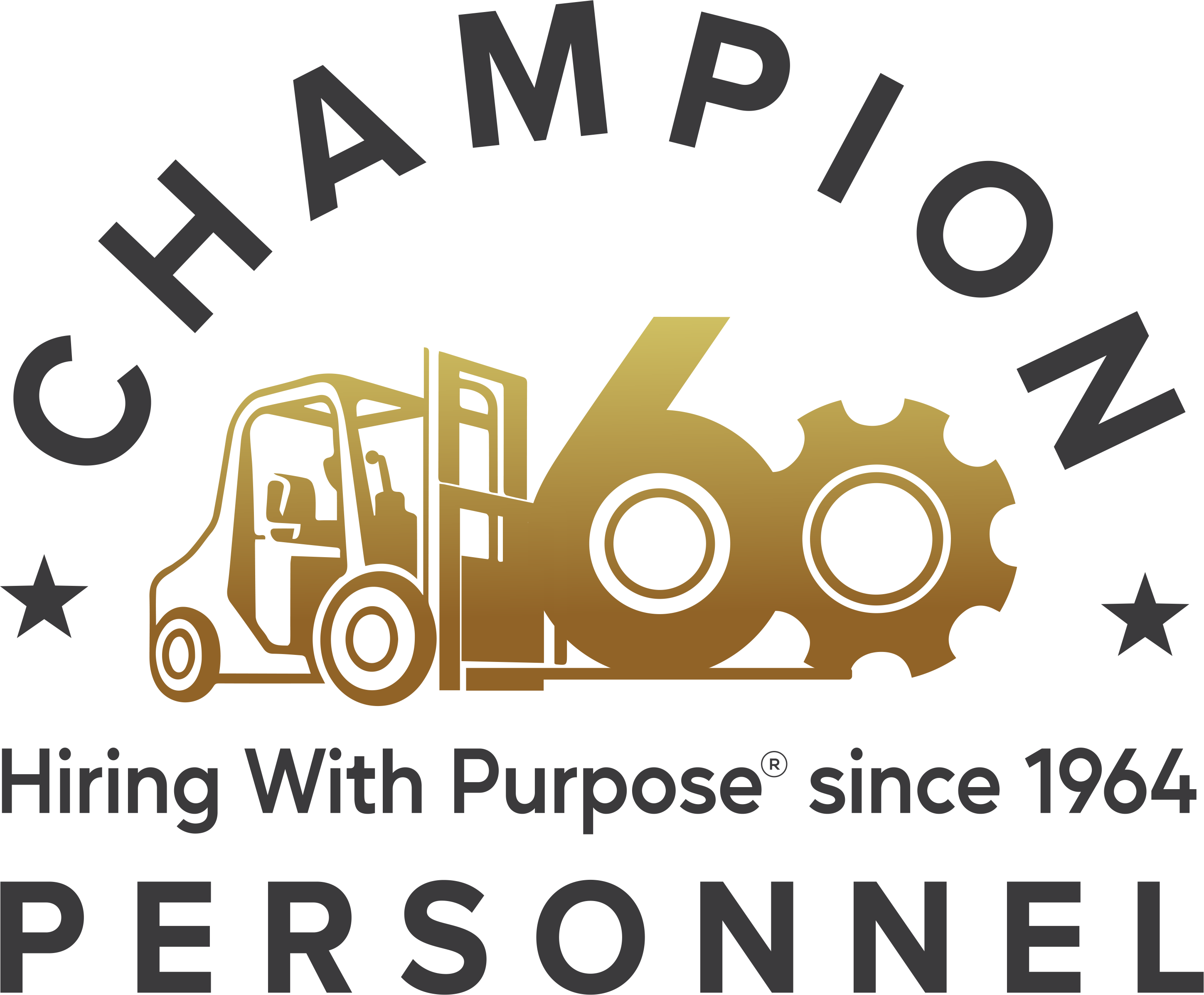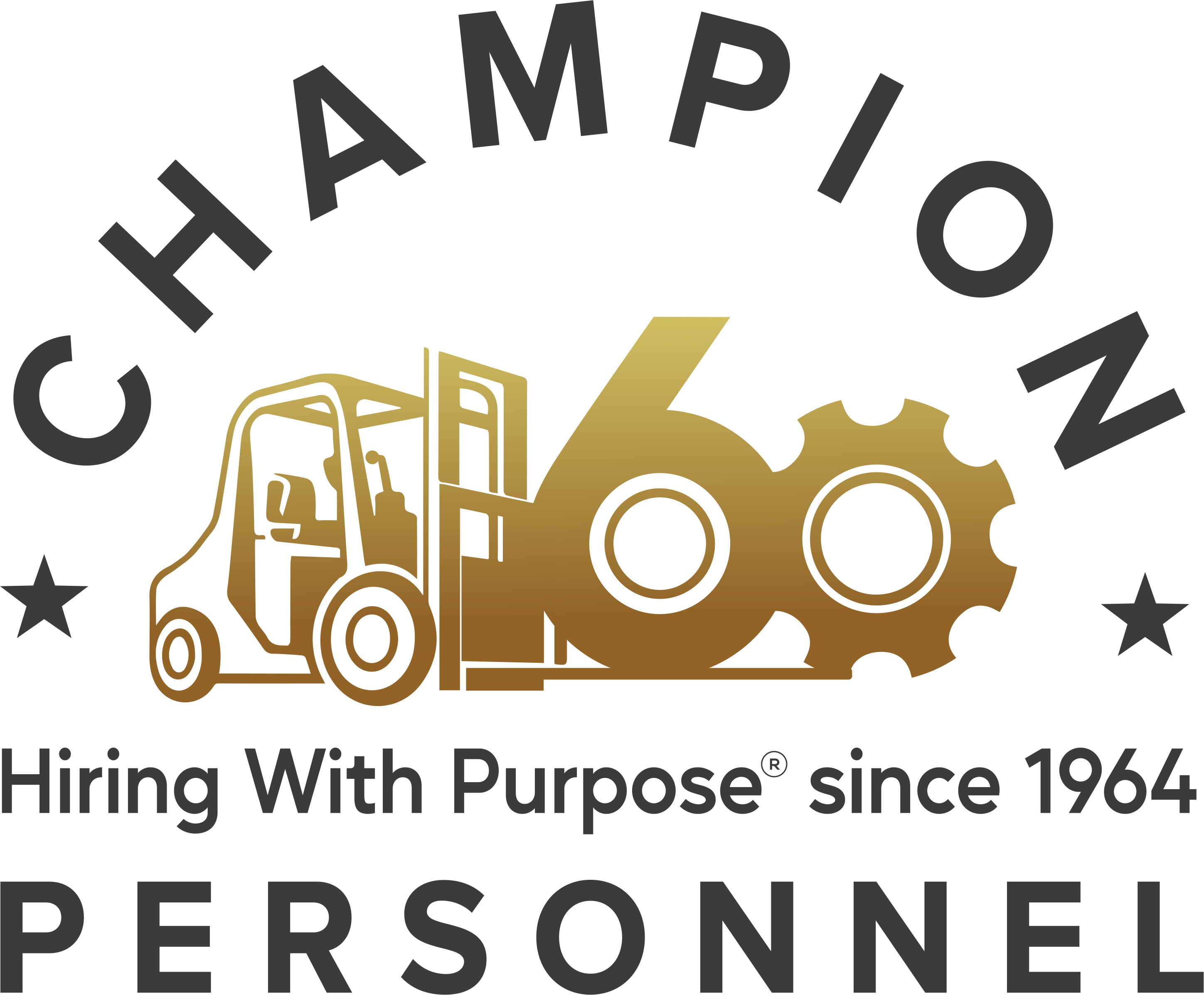Champion has dealt with over 12,000 Northeast Ohio organizations over the last 55 years.
We analyze each workplace. We have purposely met with over 500 owners/ executives/ HR professionals to discover what the best do to create and maintain great workplaces/ great places to work. We even wrote a book about it: The Great Workplace 2.0, with 15,000 copies in circulation.
And we have produced a precise list of the efforts the best organizations make to energize their profits by Hiring with Purpose.
You will find “some” of this at your next luncheon seminar or by asking your “temp agency” why you have turnover that is irritating.
But you will not find the knowledge we have accumulated and will share with you here. We are not just a “temp agency”. We do what we do to help you grow, produce a profit and to retain a staff that you can be proud of.
A short list of the secrets we have discovered:
1) Have a core list of Organizational Values: What do you stand for? What do you really do, how and WHY, for your customers? For your staff? How do you expect your people to act? What are your acceptable boundaries in behaviors? What will your people expect from you? If you have a list, check it for relevance and practicality. Does it all sound real? Is it seen, felt and acted upon by everyone? Does management support it in total and can it be felt by your staff? (In other words, does it all sound like BS?). Adjust your daily actions to reflect those values.
2) Before you interview or hire make sure the requirements are real and critical. Many times to correct turnover, an organization will simply say “We need more experience”. Over-hiring or over-hoping will cause more turnover due to boredom or even a lack of acceptable candidates. Make certain that the skill, length of experience desired to fit the job for the long run. With training, a less experienced person might be better engaged. Analyze the real job duties and what you are able to train.
3) Define the Character of an individual that will fit into your workplace. Look at your organizational Values. Look at the reality of your Workplace Culture (“Culture” is defined as “Values in Action”). What is your Culture really…not your hopes and wishes? Be real, even though it may be painful…or not. Define the Character that will fit and thrive. Who are your best people (not ‘what’ are they)? What do and did they have when hired?
4) Why would that person want to work there? Put yourself in their shoes, and be real about it. Environment? People? Training? Future skills learned? Benefits? Promotions? Company activities? Pride of producing a good product for the customer? (you would be surprised how few know the customers) Company history? Company future? Awards? Proven potential?
5) Map out the actual potential of the opportunity. New skills training. Raises. Promotions. Show how it has been done in the past.
6) Be prepared to discuss all of the above, not just mention it.
7) Be prepared to explain the expectations of the organization. Behaviors, Values, the work itself, the good, the bad, the great.
8) Interview, not just for the job, but for character and “future fit”.
9) More Great Workplaces today do what Champion calls an “Immersion Experience”. Too many HR people are doing an “orientation” (A fast look around) that they will call “Onboarding”. It does not work. A well-planned Immersion Experience allows potential workers to see, feel and analyze if they can “Connect” with the environment and the work itself. It begins the process of creating a DURABLE commitment to the organization, and the work itself. It allows for self-select out and select out by the Guide, based on the reactions of the potential workers. Ask us how to take this to the next profitable level using our template and some technology.
10) Prepare your supervisors. For the challenge of the first day on the job. Use mentors, use guides and use your outside resources to co-manage the new workers. Be open for feedback. Do exit and in-term interviews for feedback. Supervisors have a habit of telling you what you want to hear or what makes them look good. The fact is most people leave a company due to the “Boss behaviors” not the organization.
11) Assign and Train Mentors who will guide and encourage new workers, not manage them. A Mentor can interpret the daily reality of life at your organization and help improve it.
12) Follow up with new staff frequently. Especially in the first month. Most hourly turnover happens in the first 2-4 weeks due to lack of understanding of the workplace, the job itself, or the real versus described environment. Another part of that is many companies “dump” a new person into the mix and “hope” they make it. Small adjustments at the beginning of new employment can help in re-directing a new person’s job path (Or facilitating an early termination to cut a loss).
13) Here is a secret that I learned from a 92-year old large company owner in 1982: The CEO of this company personally handed out weekly paychecks to over 700 employees, stopped and talked to them, thanked them for the work they did. He made the connection to himself and the company very personal. The company’s list of employees with over 20 year’s tenure was huge. Your CEO or Chief may not have that kind of time, but should make the effort to walk around and meet each staff member. Especially with new members in their first week.
Is all this too complicated? Does it seem too expansive and time-consuming?
It cannot be done overnight for sure. One thing at a time is good and doable.
But your decision should be to either hire people as “commodities” and continue the lost productivity of chaos or begin to lay the foundation of greatness and retention that leads to predictability in the workplace.
But, what do I know? I’m just an “employment agency guy” with over 40 years of experience, a book, too many awards to fit on our walls and a long list of satisfied clients who have learned to “Do Different”.
Call me directly at 216-823-5900 and we can talk.
Robert Schepens, CPC.


 Virteom
Virteom